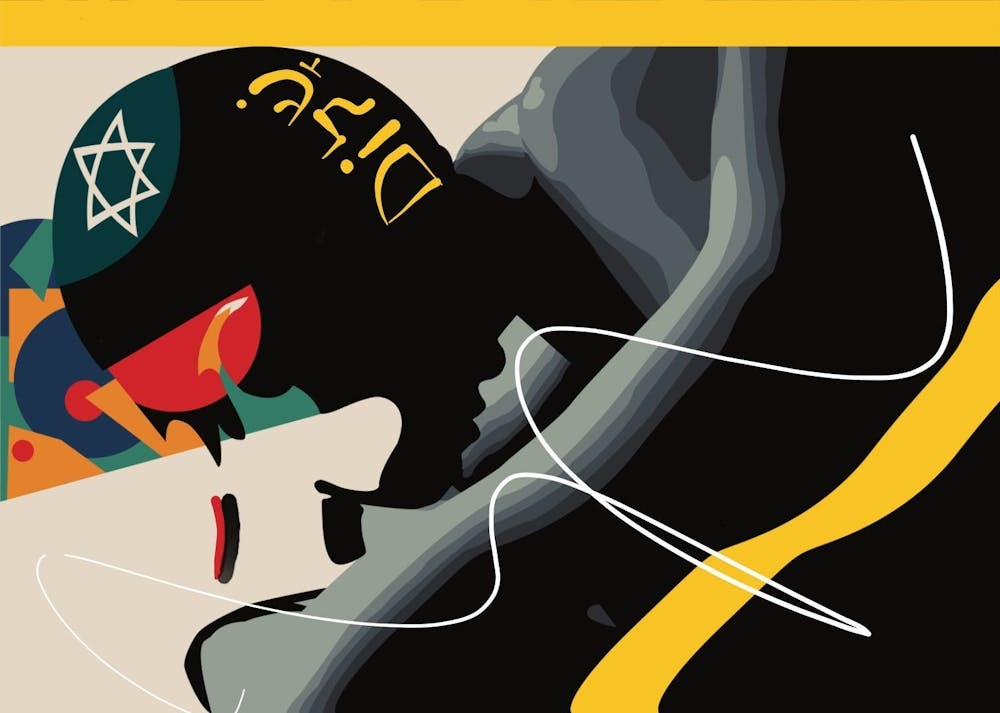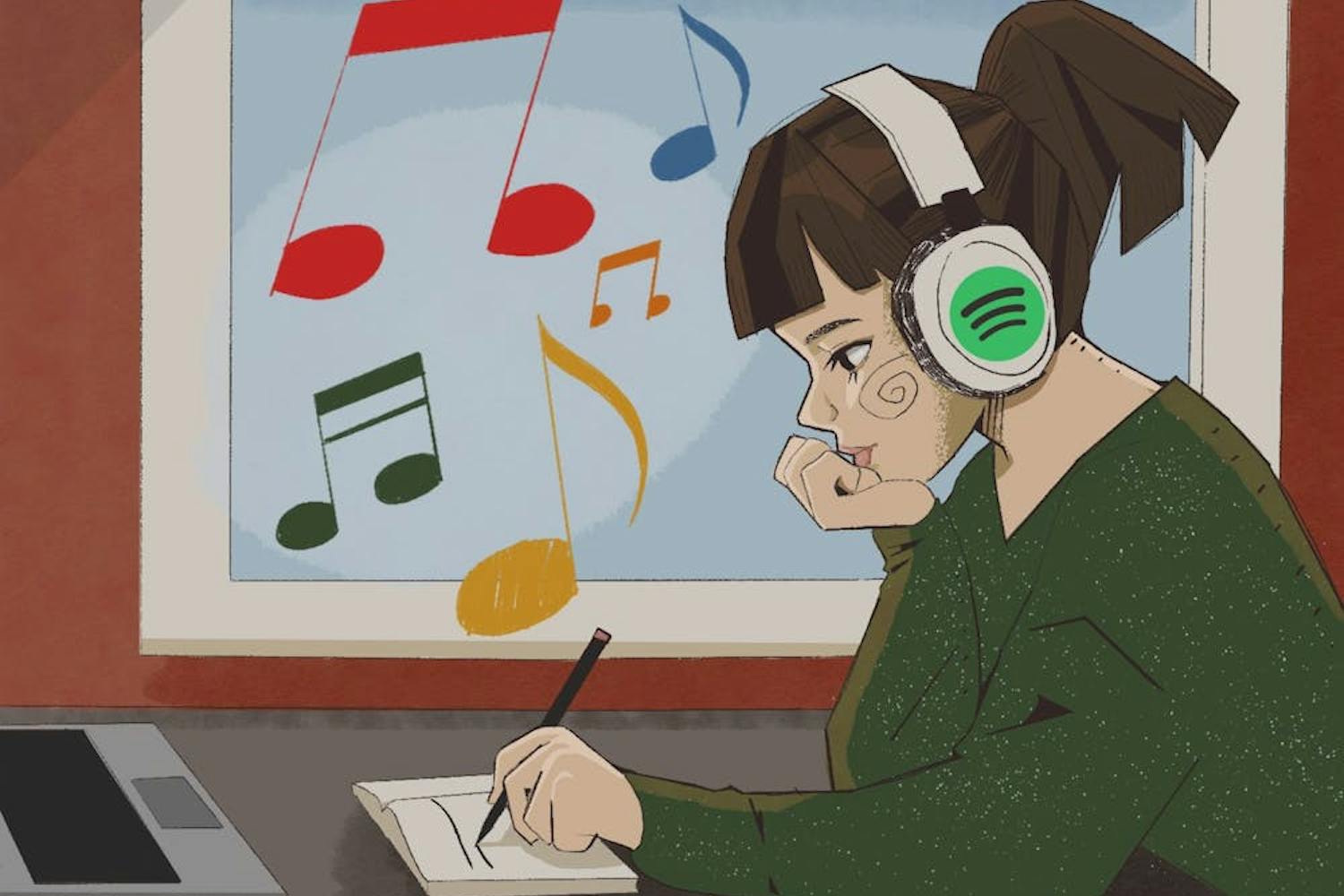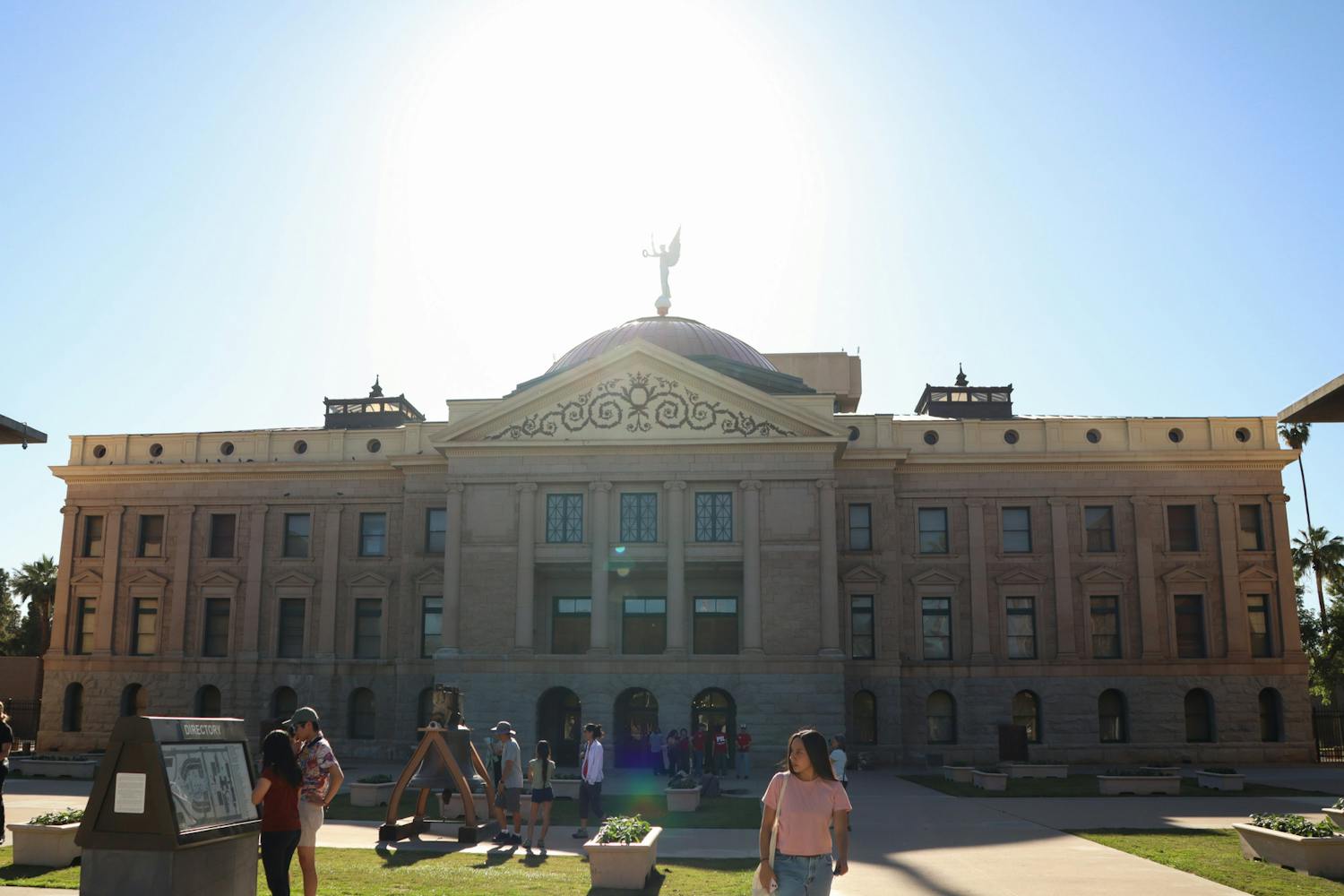Every day, Jewish students across the nation have to grapple with the possibility that being openly Jewish could negatively impact their safety. At ASU, this is no exception.
When I get dressed in the morning, I put on my jewelry, and among the collection is my Star of David necklace. As I stare at the six-pointed star for a moment, countless thoughts race through my mind.
"Am I shoving my beliefs in everyone's face?" I tuck the necklace into my shirt. "Who cares what others think? I'm proud of my identity." I untuck it. "But are others? Am I putting my safety at risk?" I tuck it in again. "Perhaps I am. But isn't hiding who I am the very thing that those who oppose me wish for me to do?" I place my necklace for all eyes to see and walk out of my room. My only regret is that I live in a time in which fear even crosses my mind.
According to the Anti-Defamation League-Hillel campus antisemitism survey, nearly one-third of Jewish college students have experienced some form of antisemitism. About 31% of the students surveyed were witness to antisemitic incidents that did not directly involve them, such as hearing offensive comments and slurs or seeing offensive posters and logos.
Over the past few years, there have been numerous instances of antisemitic ideas publicly espoused on campus. On Aug. 30, 2020, posters reading "Hitler was right" were seen and reported by Jewish students. On Nov. 1, 2021, students were greeted with another poster, now featuring an antisemitic caricature of a vampire overlaid with text reading "Who Controls The World? JEWS DO." Just weeks ago, an ASU student's anonymous submission to the Instagram page for student advocacy group Jewish on Campus described the antisemitic language they encountered with a person in their friend group.
College Republicans United held a meeting on Jan. 17 to determine whether or not it will invite notorious antisemites Kanye West and Nick Fuentes to speak on campus. The same group was also responsible for inviting white supremacist Jared Taylor to speak on campus in September 2022. Rather than preventing Taylor from speaking, ASU allowed him on campus, justifying that student organizations have the right to invite whomever they wish to speak. Additionally, during a student forum in November 2022, University President Michael Crow used West as an example of a campus speaker that would be welcome if students could prove he would contribute to an intellectual discussion.
While I admire ASU's commitment to preserving First Amendment rights on campus, I believe splinter groups not officially recognized by the University should be not allowed to even invite speakers in the first place.
At first glance, it seems as though ASU is a breeding ground for xenophobia, and that the University has not done enough to address it. While there has been an unprecedented amount of antisemitism on campus, it would be dismissive to say ASU has done nothing.
I will be the first to admit that when I sat down to write my column, I was intent on pushing all of the blame for these acts onto the University. Initially, I thought the common denominator was ASU; however, that analysis is only surface level. In reality, there is no way for ASU to completely prevent these bigoted acts. Why do flyers keep popping up? Why do controversial speakers keep getting invited to spew harmful rhetoric? Why do people think it's OK to use antisemitic language when speaking to their Jewish peers? The answer to these continual, ever-increasing questions is the individual student and their lack of education about Judaism, Jewish culture and Jewish history.
As unfortunate as it sounds, it isn’t exactly surprising that these bigoted beliefs are growing in acceptance. Since the end of World War II, the "never again" sentiment has been broadcast throughout the world. However, now that it has been 77 years since the end of WWII and Holocaust survivors, war veterans and even everyday citizens who lived during the Holocaust are passing away, people today may find that this crucial part of history, and the messages it carries with it, are no longer relevant. This couldn’t be further from the truth.
As our society once again tries to rewrite the narrative of history, minimizing the genocide of 6 million Jewish people to just an unpleasant afterthought making up nothing more than half a chapter in a textbook, people are forgetting the crucial lessons that this period in history taught us.
At the end of the day, ASU cannot control people's worldview. ASU cannot control whether or not a student puts up antisemitic flyers. ASU cannot control whether or not students try to get bigots to speak on campus. No matter how many statements are made by Crow denouncing antisemitism, xenophobes on campus will not be magically cured of bigoted thoughts.
"We live in a world of eight billion people, and unfortunately there are bad apples. We can't anticipate a lot of this, for the most part. I think we have to do what we control, which is our response and our mindset," said Jake Shulman, ASU Hillel's community experience specialist.
In spite of the antisemitism ASU's Jewish community has endured, it continues to demonstrate immense resilience. In response to flyers posted around campus in November 2021, Jewish students held a protest proclaiming pride in their Jewish identity. Furthermore, student organizations such as Hillel Jewish Student Center, Chabad Jewish Student Life at ASU and Olami at ASU continue to promote thriving Jewish life on campus.
So, what can the University do? Simply put, it needs to continue what it is doing while providing more support as needed. The police have worked swiftly to remove the bigoted posters, while they and ASU's administrators have routinely denounced antisemitic acts perpetrated on campus.
History does not simply repeat itself; rather, humans repeat history. We are at a turning point in our society, where we can either ignore the rising scourge of antisemitism or disrupt this return to a centuries-old "status quo." As history has continually shown us, time does not heal all wounds, but action can.
While ASU cannot directly abolish antisemitism on campus, students can still make a difference. If you hear or see something, say something, for complacency in the face of bigotry only aids bigotry.
Edited by Piper Hansen, Reagan Priest, Sophia Balasubramanian and Caera Learmonth.
Reach the columnist at sgkrantz@asu.edu and follow @selma_krantz on Twitter.
Editor's note: The opinions presented in this column are the author's and do not imply any endorsement from The State Press or its editors.
Want to join the conversation? Send an email to opiniondesk.statepress@gmail.com. Keep letters under 500 words and be sure to include your university affiliation. Anonymity will not be granted.
Like The State Press on Facebook and follow @statepress on Twitter.




